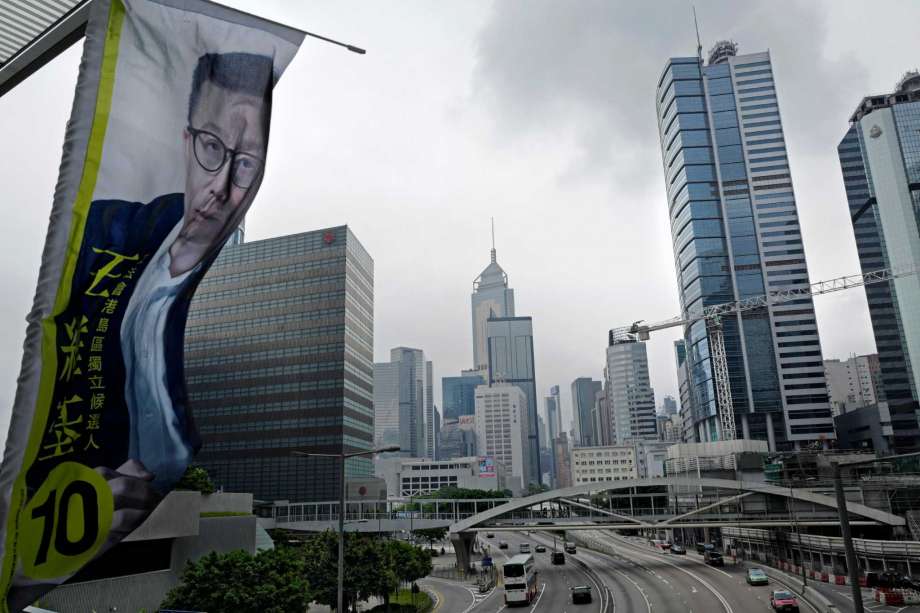-
Tips for becoming a good boxer - November 6, 2020
-
7 expert tips for making your hens night a memorable one - November 6, 2020
-
5 reasons to host your Christmas party on a cruise boat - November 6, 2020
-
What to do when you’re charged with a crime - November 6, 2020
-
Should you get one or multiple dogs? Here’s all you need to know - November 3, 2020
-
A Guide: How to Build Your Very Own Magic Mirror - February 14, 2019
-
Our Top Inspirational Baseball Stars - November 24, 2018
-
Five Tech Tools That Will Help You Turn Your Blog into a Business - November 24, 2018
-
How to Indulge on Vacation without Expanding Your Waist - November 9, 2018
-
5 Strategies for Businesses to Appeal to Today’s Increasingly Mobile-Crazed Customers - November 9, 2018
Pro-Democracy Candidates Win Big in Hong Kong
Among those elected is Nathan Law, 23, who helped lead the “Umbrella Protests” in 2014 for self-determination.
Advertisement
“It can be described as a miracle that I won”, the South China Morning Post quoted Nathan Law Kwun-chung as saying. “The [large number of] votes will remind me to do better and not to let people down in the next four years”. Eddie Chu, a 38-year-old social activist, claimed victory with 84,000 votes. “Young people have a sense of urgency when it comes to the future”.
At some polling stations there were snaking queues until until 2:30 am (1830 Sunday GMT) – four hours later than the scheduled cut-off time – with a turnout of nearly 60 percent of 3.7 million voters.
The Democratic Alliance for the Betterment and Progress of Hong Kong (DAB), won 12 seats and continues to be the biggest political organ within the LegCo.
Legislature operates within a partially democratic system.
They will also be able to vote down proposals to change the council’s Rules of Procedure to prevent filibusters, a key tactic in the minority bloc’s political arsenal.
Another 30 seats are taken by members representing business and trade groups such as accounting, finance, medicine and fisheries, most of which support Beijing because their members have close ties to China’s communist elite on the mainland. Five more “super seats” are chosen by voters citywide.
“As new faces replace veterans, the council’s relationship with the administration is poised to undergo profound changes”, the station said in its report on the result.
The statement, issued by the Hong Kong and Macao Affairs Office of the State Council, noted that certain organizations and candidates in Hong Kong were publicly advocating for “Hong Kong independence”, capitalizing on the exposure afforded to them by the LegCo election.
There has been no reaction yet from the Chinese government in Beijing.
Pro-establishment lawmakers cautioned that the newly elected localists could escalate their call for independence to a whole new political level. “He had no hope of counteracting this emergence of separatist sentiment among the younger generation”. Six candidates were disqualified for their beliefs.
Leung has also ordered schools to punish any talk of the topic among students, threatening teachers with deregistration if they are found encouraging it.
Young activists particularly have lost faith in the “one country, two systems” deal under which the city is governed, which grants it much greater liberties than on the mainland.
It was the highest turnout since Hong Kong was returned to China by Britain in 1997 under a handover agreement guaranteeing its freedoms for 50 years.
“Independence is not realistic at all”, said Elizabeth Quat, a member of a pro-Beijing party.
Leaders in Beijing and Hong Kong will have to reconsider their hard-line approach toward rising pro-democracy opposition after it backfired, “because now with the entry of a new generation of young democrats into the legislature, the politics inside the legislature will be very fierce”, said Sonny Lo, a political analyst at The Education University of Hong Kong.
Advertisement
Choi said. “The pan-democrats are beginning to be divided, and it’s getting harder and harder to unite these disparate political forces”.





























